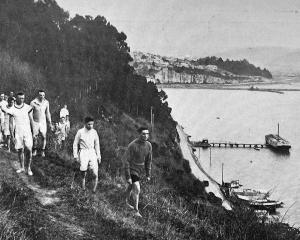By an Order-in-Council, made last week, the importation of certain perfumed spirits and perfumery into Niue Island is prohibited, except under certain restrictions.
A similar prohibition in regard to scent was made some time ago for the benefit of the natives of Rarotonga, because it was found that when ''bush beer'' drinking was stopped (the term doesn't at all indicate the strength of the liquor), the quantity of scent imported took a sudden and significant jump.
A Niue resident, who arrive at Auckland from the island on Sunday, told a Star representative that though Niue was a strictly ''dry'' island, the natives were not in the habit of drinking either ''bush beer'' or scent, and their only operations in the way of procuring alcohol had been confined, until recently, to smuggling what whisky they could off visiting boats.
He presumed that the prohibition had been secured by the Resident Commissioner (Mr Cornwall) in emulation of the example of Rarotonga. The European residents of Niue, it appears, are allowed to import one case of whisky at a time for their own use, and may extract one bottle per week from the Government store until their supply is exhausted.
• Regulations for physical education and military drill are gazetted: It is provided that at least one period of not less than 15 minutes during school hours in each day should be devoted to physical drill; and, in addition, a breathing exercise should be given at the close of each hour or lesson period in every class of the school.
In public schools in which there was, prior to January 1, 1913, a duly equipped Junior Cadet corps or detachment, such corps or detachment may be recognised for the purposes of instruction in military drill under the following conditions:- A corps shall contain not less than 48 boys who are pupils of the school; a detachment not less than 10; provided that if any corps or detachment shall for 12 months fall below 10 the corps or detachment shall be disbanded. No boy shall be included on the roll of any corps or detachment who is less than 12 years of age, or more than 14 years of age, unless he is still on the roll of the public school, or, in the case of a district high school, on the roll of the public school, on the roll of the primary department of such school.
There must be a qualified instructor on the staff of the school in charge of the corps. For the purpose of this clause an instructor shall be held to be qualified if (a) he holds a commission in the Defence Forces or in the Senior Cadets; (b) he was gazetted as an officer in the Junior Cadets before January 1, 1913. Pellets or cartridges, as the case may be, may on application through the Education Board be issued to any recognised corps or detachment that is provided with the necessary equipment for target practice.
• A constable on his beat in Manchester Street, Christchurch, on Sunday, found a wailing child wandering aimlessly about, lost. He took the youngster to the station where it was cared for until its guardians arrived. Shortly after an indignant lady arrived in a taxi-cab and invaded the watch-house, where she found the little one.
Instead, however, of thanking the police for their care of her child, she demanded why they had kept the child at the station instead of going around the hotels to look for its mother. As an officer, relating the incident, said, a policeman wandering around the hotels with a child in his arms would present a peculiar spectacle, and, besides, the police have other things to do. - ODT, 7.11.1913.











